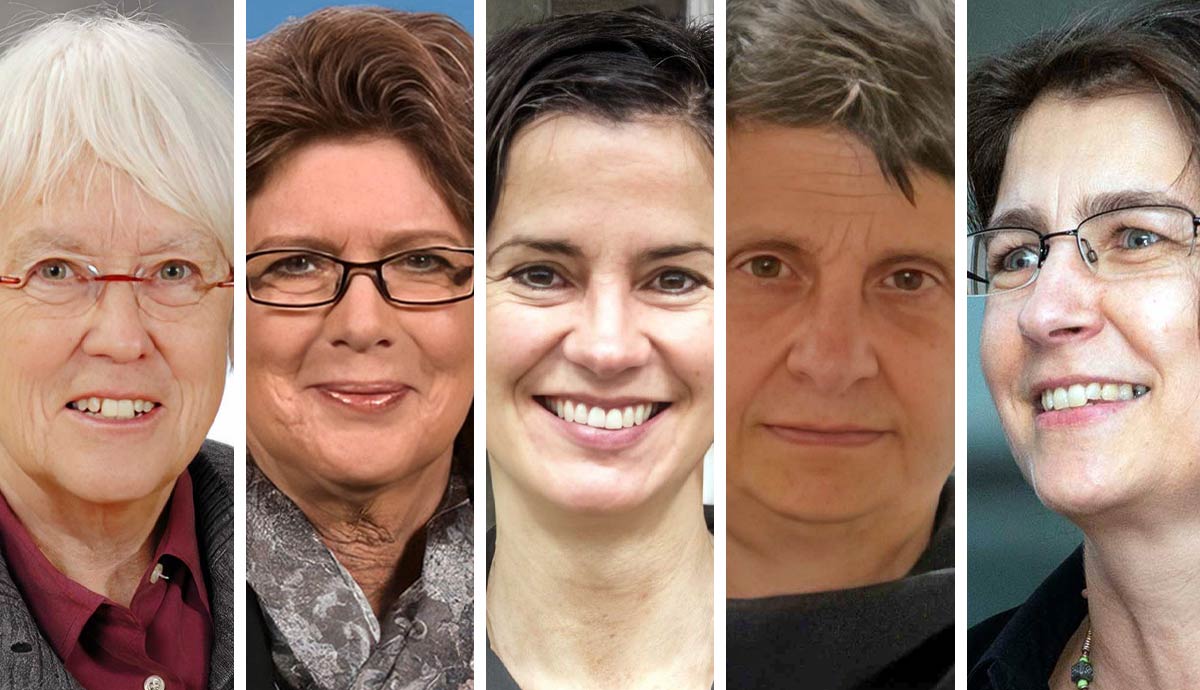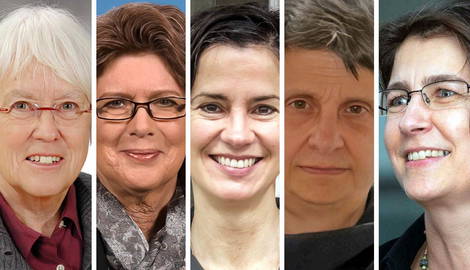
Epistemology is the branch of philosophy that deals with knowledge, belief, and the relationship between the two. Being one of the core philosophical disciplines from antiquity, epistemology has always been dominated by men. Nonetheless, in the last decades, almost all novelties in the field were introduced by women philosophers striving to break the walls of the Ivory Tower. Here are five women in the field of epistemology that you ought to know!
What is Epistemology?

Unlike other philosophical disciplines in which we still search for definitions, epistemology kicked off with the definition of knowledge. Only then do the problems begin to mushroom. Plato famously claimed that knowledge is justified true belief, thereby carving the tripartite definition of knowledge into the history of philosophy. Much of the 20th-century analytic philosophy grappled with this legacy.
However, except for the manifestos for naturalized epistemology, or more scientifically relevant theory of knowledge, the epistemology largely remained in the realm of a priori arguments and debates. The 1980s and the 1990s were painted with different colors: female epistemologists took the matter into their own hands. The final result? Epistemology has never been a more alive, diverse, and exciting field that actually contributes outside the academic circles.
1. Lorraine Code

Lorraine Code is a Canadian philosopher and professor emerita at York University in Toronto. She serves as a Fellow of the Royal Society of Canada, is a recipient of the Distinguished Woman Philosopher of the Year from the American Society for Women in Philosophy, the Ursula Franklin Award in Gender Studies, and the Queen Elizabeth II Diamond Jubilee Medal. She completed her PhD at the University of Guelph in 1978.
The premise from which Code began her transformation of epistemology into a feminist field was that sex of the knower might be a more important factor in knowledge-seeking processes than traditional epistemologists realized. In her book, What Can She Know? Feminist Theory and the Construction of Knowledge, Code developed an argument that there are sexed/gendered specificities among the conditions of creating knowledge.
In other words, a subject who has justified true belief is not an abstract individual and knowledge is not something that is being discovered by such an individual. Rather, it’s a person immersed in the world who actively shapes knowledge.
From her book onwards, “situated knower” has been used to designate such persons. Epistemic assessments are not sex or gender-neutral, they carry a heavy load of subjectivity that should be encompassed.
Code also discussed social epistemology in the context of feminist theory. The 21st century was characterized by the rise of social and group epistemology at the expense of both individualistic traditional epistemology and its critics like virtue and feminist epistemologists. However, Code was among those who argued that this collectivist turn may fail to emphasize that cognitive division of labor and expertise are embedded into an oppressive set of social arrangements. This further marginalizes knowers who belong to vulnerable groups and even shuts down their particular standpoints, which may provoke the failure to obtain knowledge.
2. Linda Zagzebski

A pioneer of virtue epistemology, Zagzebski (1946) is George Lynn Cross Research Professor Emerita and Kingfisher College Chair of the Philosophy of Religion and Ethics Emerita at the University of Oklahoma. She is also a Guggenheim Fellow and a fellow of the American Academy of Arts and Sciences. She has served as President of the Central Division of the American Philosophical Association, the Society of Christian Philosophers, and the American Catholic Philosophical Association. She earned her Ph.D. in Philosophy from the University of California, Los Angeles in 1979 under the supervision of the big shot of analytic philosophy, Tyler Burge.
In her seminal book from 1996, Virtues of the Mind, Zagzebski links Aristotelian virtue ethics and epistemology by arguing that intellectual or epistemic virtues, like moral virtues, are character traits that contribute to cognitive excellence and the flourishing of the individual. In this way, Zagzebski also challenges the narrative of traditional epistemology like Lorraine Code, given that the subject is not an abstracted individual, but a person endowed with specific intellectual or epistemic character which may facilitate the obtaining of justified true beliefs.
In other words, virtue epistemology marks the shift from the properties of beliefs to the properties of subjects. Zagzebski analyzes in depth some of the epistemic virtues like open-mindedness, intellectual courage, and intellectual humility, which play a crucial role in acquiring and sustaining knowledge.
Her book inspired a generation of philosophers who are actively working on redesigning educational institutions to help students foster epistemic virtues within the Intellectual Virtues Academy. This is the first US-based school for 6-8th grade completely grounded in epistemological research on the development of intellectual character.
3. Miranda Fricker

A Wonder Woman of philosophy, Miranda Fricker (1966) coined the term “epistemic injustice” and devoted her career to fighting the phenomenon lurking behind that term. Currently, Fricker is Julius Silver Professor of Philosophy at New York University, a co-director of the New York Institute of Philosophy, as well as an Honorary Professor at the University of Sheffield. She is a Fellow of the British Academy and the American Academy of Arts and Sciences. Fricker earned her DPhil from Oxford in 1996, where she was co-supervised by Sabina Lovibond and Bernard Williams. She was influenced by the feminist perspective early on due to her experience with an interdisciplinary MA in Women’s Studies at the University of Kent.
In her 2007 book Epistemic Injustice: Power and Ethics of Knowing, Fricker describes the phenomenon of being excluded and silenced in the capacity of being an epistemic subject. Epistemic injustice comes in two notorious forms.
Testimonial injustice occurs when a subject’s credibility is unfairly diminished due to bias, thereby impeding their capacity to convey knowledge. Hermeneutical injustice, on the other hand, arises when there is a gap in collective interpretive resources, leaving marginalized groups unable to make sense of their social and epistemic experiences. Fricker also stresses the ethical consequences of epistemic injustice and claims that such a phenomenon harms individual cognizers not only by distorting knowledge transmission but also by undermining their epistemic status.
It is worth noting that her book been translated into Swedish, Spanish, Japanese, Chinese, Portuguese, Turkish, German, French, and Korean—a rare feat for any academic publication, especially one in philosophy.
4. Alessandra Tanesini

Dr Jekyll to Zagzebski’s Mr. Hyde, Tanesini is one of the leading experts in vice epistemology. Coming from Bologna, Tanesini did her PhD at the University of Hull in the UK and then went on to teach at Cardiff University. Unlike virtue epistemology, which highlights character traits that aid in acquiring knowledge, vice epistemology zeroes in on the character flaws that impede this process. This field has gained significant prominence amidst the political turmoil of the 2016 American election and the COVID-19 pandemic, as these events highlighted how detrimental arrogance and closed-mindedness can distort public discourse.
Thus, along these lines, in her 2021 book, The Mismeasure of the Self: A Study in Vice Epistemology, Tanesini focuses on how superbia, arrogance, servility, self-abasement, vanity, narcissism, timidity, and fatalism corrupt our pursuit of knowledge and even distort our self-perception. In other words, epistemic subjects not only can have flawed intellectual or epistemic character, but this can contribute to their inability to even understand themselves. “Know thyself” has never been harder in the age of fake news and deep fakes.
Interestingly enough, Tanesini places her arguments in a wider, collectivistic perspective: epistemic subjects are always embedded in particular communities whose cultural and social practices may help entrench or dissolve epistemic vices. This does not mean that an individual knower or cognizer does not bear responsibility for epistemic harms or moral wrongs. However, you still need to have higher moral and epistemic grounds to judge others: blameworthiness should come with accountability but also self-respect to admit one’s mistakes. Precisely this self-respect is something that gives you the right to judge others (although not to resent them).
5. Velislava (Veli) Mitova

Veli Mitova is a South African philosopher working on epistemic decolonization (fitting given the history of her home country). She is a Professor of Philosophy and the Director of the African Centre for Epistemology and Philosophy of Science at the University of Johannesburg. Additionally, she leads the project Philosophy through Indigenous Knowledge in the Global South, which is funded by the NIHSS. Mitova obtained a DPhil in epistemology from Cambridge and she is an alumna of Rhodes University.
In her papers, Mitova explores how traditional epistemology has often marginalized or overlooked non-Western forms of knowing at the expense of the intuitions of a narrow population of white academic philosophers. She argues that we need to integrate indigenous knowledge systems from the Global South into our mainstream epistemology in order to rectify historical imbalances and enrich our understanding of knowledge. This means that the philosophical community has a duty to recognize the value of diverse epistemic traditions and the contributions they can make to global knowledge.
Mitova, therefore, advocates for a more equitable epistemology that relies on the pluralistic and just conception of knowledge. She builds on Miranda Fricker’s notion of epistemic injustice to show to what extent such a phenomenon is present in Africa.










